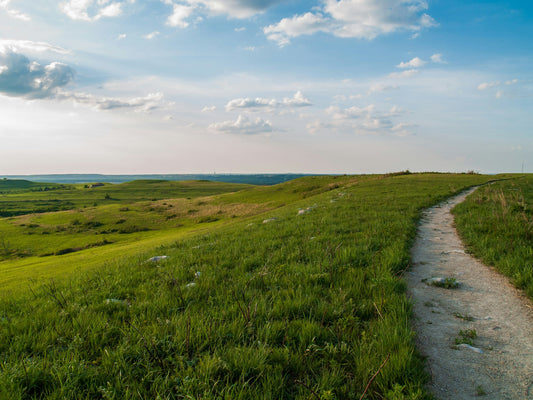The Legality of Hemp in Georgia: A Comprehensive Guide
The hemp business in Georgia picked up more recently and it is now capable of creating all different kinds of products derived from CBD or other therapeutical hemp compounds, including oil or tinctures, gummy bears, and topicals.
Yet, people are still asking more than before, “Are THC gummies legal in Georgia?”
Well, despite this market's growth, it is vital that it be subject to dependable and consistent regulation to protect customers, ensure that products are accurately labeled, and ensure that the retail industry is conducted ethically.
In an attempt to answer some of these concerns, Georgia lawmakers passed Senate Bill 494, a suite of rules that outlined, in solid terms, the process of manufacturing, testing, packaging, and selling hemp products in Georgia.
These new restrictions aim to protect customers, particularly minors, from potentially dangerous or mislabeled goods and create a clear framework that cultivators, processors, and merchants must follow to lawfully operate in Georgia’s hemp business.
The bill lays out specific measures to ensure a safer and more regulated hemp market, such as minimum age requirements for purchases, mandatory lab testing, and licensing requirements.
Furthermore, it restricts the amount of THC that can be found in edibles and outright bans smokable hemp and anything that looks like a popular snack or candy—things that could entice kids.
In this article, we are going to talk about the new hemp laws that are in effect in Georgia, how they affect people in different business spheres, and what companies have to do to keep up with these new requirements.
Legal Definition of Hemp in Georgia
The legal definition of hemp under the law states:
“The plant Cannabis sativa L. and any part of that plant, including the seeds thereof, and all derivatives, extracts, cannabinoids, isomers, acids, salts, and salts of isomers thereof, whether growing or not, that has a total delta-9-tetrahydrocannabinol concentration that does not exceed 0.3 percent on a dry-weight basis, with the exception of hemp extract, which may not exceed 0.3 percent total delta-9-tetrahydrocannabinol on a wet-weight basis.”
Fla. Stat. § 581.217
Legal Hemp Product Definition
A per the Georgian law:
“Hemp extract" means a substance or compound intended for ingestion, containing more than trace amounts of a cannabinoid, or for inhalation which is derived from or contains hemp and which does not contain controlled substances. The term does not include synthetic cannabidiol or seeds or seed-derived ingredients that are generally recognized as safe by the United States Food and Drug Administration.”
Fla. Stat. § 581.217
Georgia shall not permit the sale or other distribution of any consumable hemp product unless the processor or manufacturer has, within the last 12 months, agreed to do a full panel certificate of analysis of the product for sale or distribution, only to have the analysis completed and disclosed to the public.
Before a consumable hemp product may be sold or distributed in GA, it must meet certain packaging requirements. The containers are not to appeal to children, not be similar (or mistaken for) any well-known candy or snack, not infringe trademark or branding law and be both tamper evident and child resistant.
Current Laws Governing Hemp Products in Georgia
To get a better answer to, “Are Delta 9 gummies legal in Georgia?”, here is what the Senate Bill 494 states:
- The retailers can only sell hemp products such as CBD to people 21 and older.
- Manufacturers, wholesalers, and retailers must buy permits from the state Department of Agriculture.
- Products can only be sold if they have been tested, and state agriculture officials also regulate testing labs.
- Hemp products must include results of testing and a warning sticker if they contain THC, the substance in marijuana that produces a high. Officials have said products they tested in the past had illegally high levels of Delta-9 THC and said labels didn’t accurately reflect a product’s ingredients.
- The measure bans the sale of hemp products within 500 feet (152 meters) of a K-12 school and bans hemp products that look like existing snacks or candy, trying to make them less attractive to children. That could ban brownies, cookies, and candy, but experts say gummies and hemp-infused beverages are still legal.
- It caps how much Delta-9 THC a product can have and then gets rid of products containing other chemicals that can be converted into THC.
- Delta 8 THC and Delta 10 THC are CBD substances that remain legal in Georgia.
Hemp Product Restrictions in Georgia
Consumable hemp products cannot be sold or bought and cannot be possessed by those under 21 years of age. If you are someone under 21 and asking, “Are Delta 9 gummies legal in Georgia?” the answer is a BIG NO for you!
All businesses that sell consumable hemp products must prominently display a sign stating in capital letters no less than one-half inch in height:
"CONSUMABLE HEMP PRODUCTS ARE NOT SOLD TO INDIVIDUALS UNDER 21 YEARS OF AGE."
Hemp includes Cannabis Sativa L. with a concentration of 0.3 years or less of the total delta 9 THC concentration in dried flower or leaves. It is generally illegal for any person to offer for sale at retail, at retail, the unprocessed flower or leaves of that plant, Cannabis Sativa L. but does not prohibit the sale of hemp products that may contain the extract or derivative of the flower or leaves of the plant.
Marketing and Advertising Rules
There are guidelines for advertising of consumable hemp products within the state.
- Advertisements cannot target children, must avoid resembling common candies or snacks, must not infringe on trademark laws, and must not suggest that the product contains low THC oil or medical marijuana.
- On or after July 1, 2024, no person shall create or begin operating in this state a retail establishment that sells or otherwise distributes consumable hemp products to consumers within 500 feet of any educational institution, public or private, providing elementary or secondary education to children at any level, kindergarten through twelfth grade, or the equivalent thereof if grade divisions are not used by such institution.
Overview of Georgia Agriculture Department Licensing
Growers, processors, and testers of hemp and hemp goods are now under the Georgia Department of Agriculture (GDA) purview.
According to O.C.G.A. §§ 2-23-4, 2-23-5, the GDA must be contacted by anybody desiring to cultivate or process hemp in order to acquire a license.
Individuals seeking licenses may be ineligible if they have a particular number of prior convictions involving prohibited substances, which means they will have to submit to fingerprinting and background checks. The GDA will inspect processing facilities and grow sites to verify compliance, and licenses need to be renewed every year.
Proper disposal of crops over the permissible hemp THC level (0.3% delta-9 THC on a dry weight basis) is mandated for crops that surpass this threshold, and growers are obligated to submit samples from each lot for THC testing. Also obligated to maintain meticulous records are processors and growers.
Revised Standards for Hemp Product Labeling and Testing
According to Georgia Comp. R. & Regs. 40-32-2-.02(3), before any hemp product can be sold to the public, it must undergo testing at a GDA-approved laboratory.
Test findings, THC content warning warnings, and a quick response (QR) code for product traceability are all required components of product labels. Hemp cigarettes and vape pens are now illegal according to the new rules.
You can face criminal and civil consequences for selling hemp products that aren't tested or have the wrong label. As an illustration, it is a crime for anyone to sell or provide hemp products to an individual who is younger than 21 years old (O.C.G.A. § 16-12-241(e)).
The Purpose and Possible Results of the New Hemp Regulations
In order to ensure that customers are protected by product safety standards and correct labeling, these regulations seek to build a well-regulated hemp business in Georgia.
Products that are not regulated and may contain large amounts of THC or synthetic cannabinoids are subject to testing and licencing requirements. This gives a better answer to, “Are Delta 9 gummies legal in Georgia?”
Hemp has a favorable regulatory environment that encourages the entry of farmers and small enterprises. However, current vendors of CBD and hemp may have to change their ways of doing business swiftly to meet the new regulations.
The future of federal hemp restrictions and their interaction with Georgia's hemp laws remains uncertain. If the state's hemp program is to be successful, the GDA's rigorous supervision is essential.
Properly labeled items from approved sellers should be sought after by customers as the hemp business in Georgia keeps expanding. In order to avoid fines, businesses should keep themselves apprised of their legal responsibilities and make any required adjustments.
Conclusion
Since Congress legalized hemp six years ago, the Georgia hemp industry has been making and selling hemp goods with almost no problems. But soon, there will be some big rules that will affect this industry and the direct answer to, “Are Delta 9 gummies legal in Georgia?”
The General Assembly (this year) passed a law that will make it a crime for stores to sell hemp products to anyone under 21. It also requires manufacturers to package, label and test their products.
"Congress left it pretty open-ended," said Senate Bill 494's author, state Sen. Sam Watson (R-Moultrie). "There are no rules or regulations around it." It's a bill to protect consumers.
The Senate passed the bill by a large majority in March. It requires people who grow, make, or sell hemp to get licenses and pay a fee. Anyone breaking the law will be fined legally and criminally.
With Georgia’s hemp industry growing, anyone associated with it should know what rules and regulations apply to hemp in the state and how both state and federal hemp policies have changed in recent years.
The new rule bars the sale of any hemp products that contain more than 0.3 percent THC, the ingredient in marijuana that produces those highs.
That means stores can keep selling sweets, tinctures (usually alcohol or oils with cannabis added to them that are taken by mouth), and CBD drinks without alcohol. But food and anything that can be smoked will no longer be allowed.









